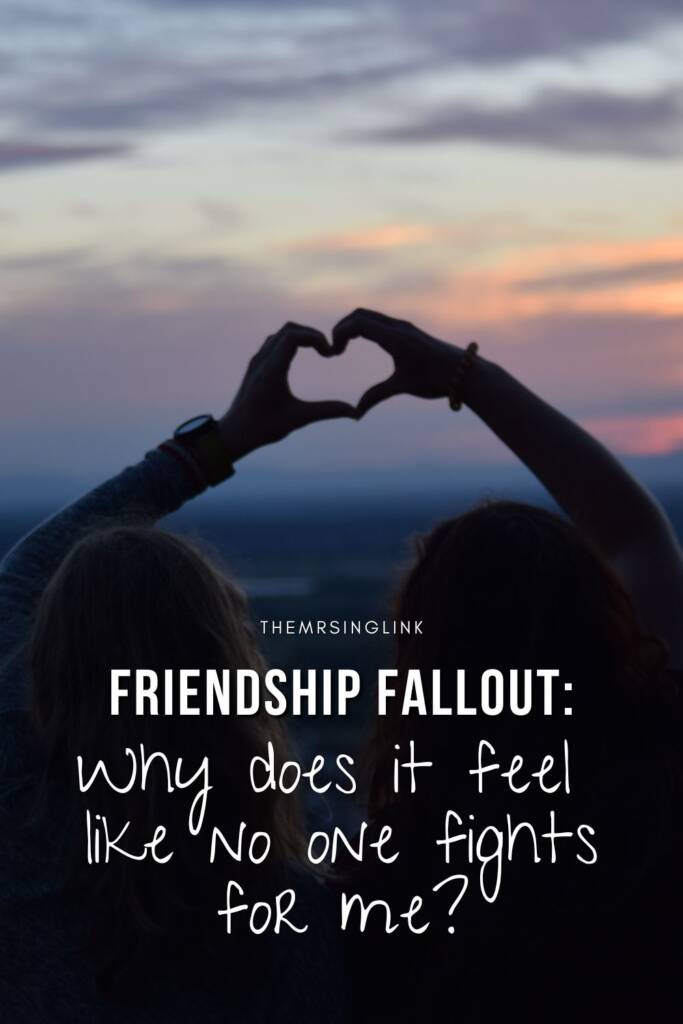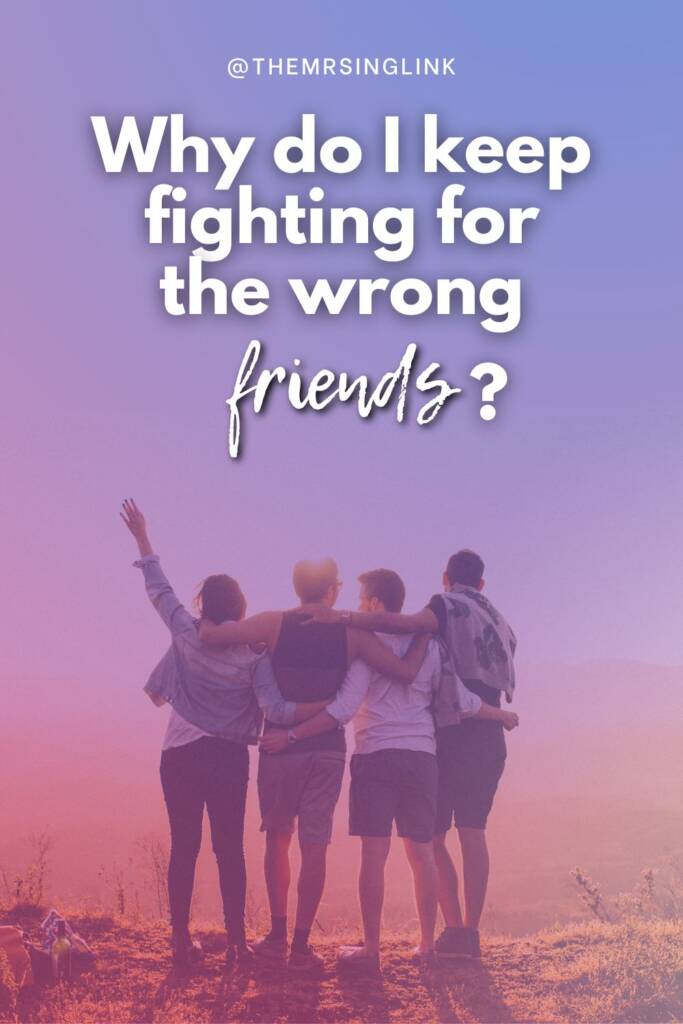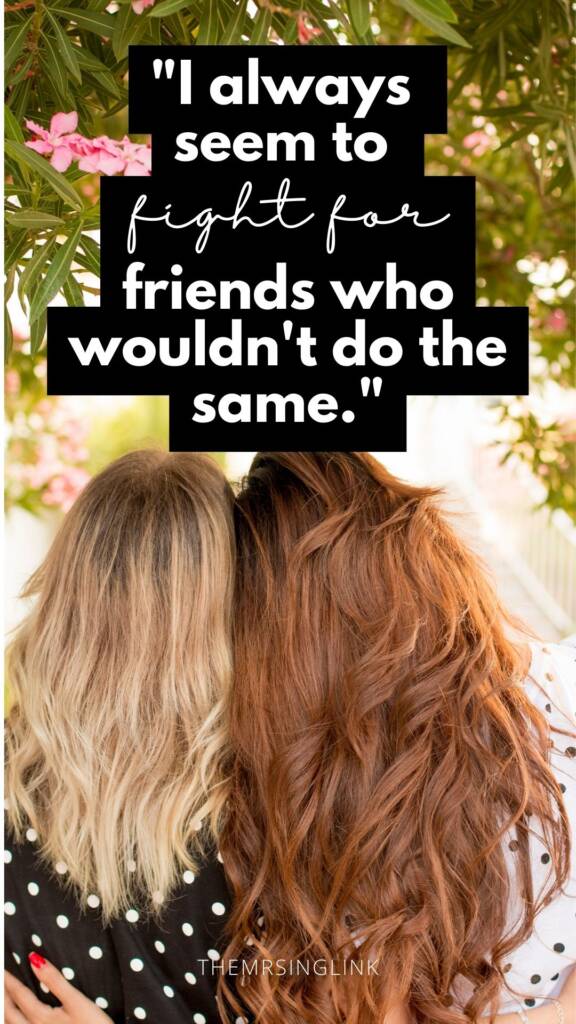This isn’t my typical kind of post, but more of a rant, venting and confession all-in-one. I’m taking it back to the old school days of blogging when they were primarily used as personal online journals – the publicized “current events” of our personal lives. That’s the energy I’m bringing today, because my heart has been heavy lately pertaining to friendship fallout. And I’m sure there are those who can resonate with this one.
There’s a few things I’ve recently unpacked about myself when it comes to my past and present friendships. Baggage that I didn’t realize existed hit me like a tidal wave. Then things started making sense and questions began rising as I put the pieces, all the way from my childhood, together: Am I fighting for the wrong kind of friends in my life?
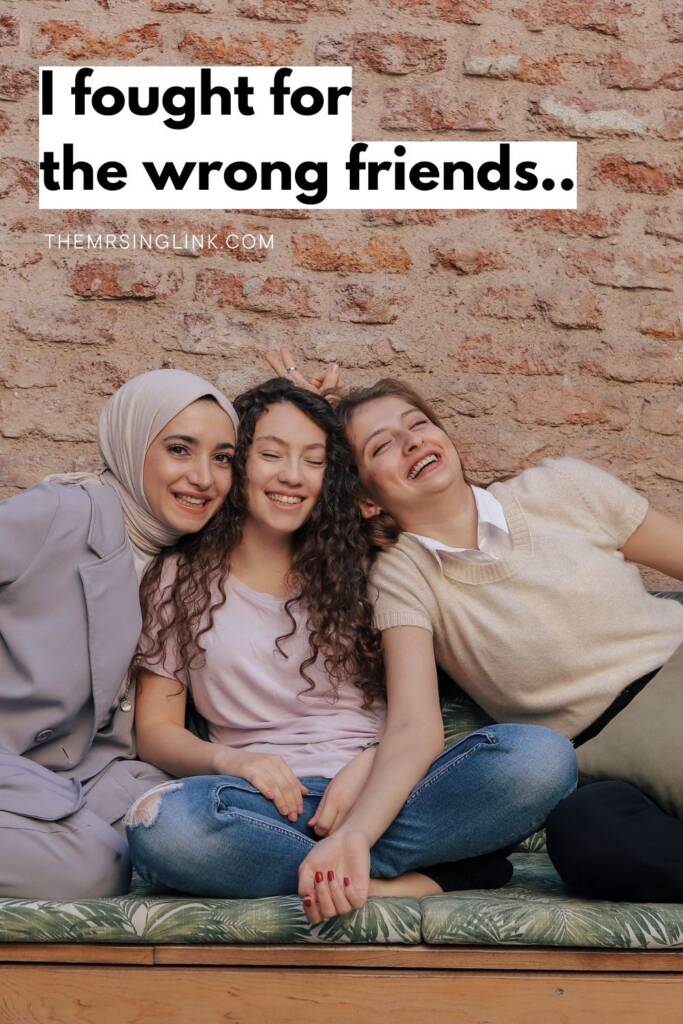
Friendship Fallout: Fighting for the wrong friends
I learned a really unhealthy idea about loyalty from a young age. That whole, “Blood is thicker than water” kind of loyalty. Yeahhh, I came from one of those kinds of family dynamics. The thing is, it should be this way, but unfortunately blood is often tainted with jealousy, unhinge strife, limited acceptance, involuntary support and unrealistic expectations. TBH, let’s be real, friendships can be tainted this way, too.
Anyway, I realized I had learned that loyalty meant self-sacrifice, even at the expense of my own peace, security and individuality (beliefs, thoughts, opinions). I’ll never forget when 3rd party family drama made me prove my *loyalty* by de-friending certain family members from social media.
So, in friendship, I went in with the idea that not only did I feel I had to prove my loyalty to others in order to ensure relational standing [with the person] and to receive acceptance and approval [from them], but I also had to remain loyal through toleration. So when a friend hurt my feelings or behaved in ways that weren’t that of a true friend, loyalty meant not only accepting these things but tolerating them.
I also learned that “if there’s a *problem*, to assume the problem is *me*”. In light of the “[insert sound] Is it me – am I the problem?” wave…yes, self-awareness and reflection in our lives is ab-so-lutely necessary! But also, listen, nobody is blameless, flawless and perfect – nobody had the easy, perfect childhood or was raised by perfect parents. No matter how much you feel you were *Loved*.
So, in my early adolescence, whenever I confided about an issue I was having with Said-Friendship, the usual response I heard was, “Well, Carissa, maybe it’s something you […did, didn’t do, said, didn’t say, etc.] OR maybe it’s who you are [being]. ” At the end of the day, I needed to assume the problem was me, that I was responsible, and the fault was my own – that I needed to look within, find the problem, and make a change (or take a different approach) – a.l.w.a.y.s. This was dangerous [to be told, again and again] as early as 12 years old, who ended up being bullied by another girl in gym class in 6th grade.
[Related Read: Here’s why I think the “Best Friend” title is overrated]
Therefore, from this, I often took away that if I wanted to see change [in others], I needed to change myself or conform/adapt to others. And in friendship I did this so often, I can look back and see the ways I had chameleon-ized to each one. Sometimes I ask, “Who WAS that person?” because I didn’t recognize those parts of myself nor do I have very concrete memories of that person.
I also took away that by assuming *I am the problem*, I would then be called to – yet again – *prove* that I was worthy. Henceforth I would begin over-extending, over-explaining, and people-pleasing til the cows come home – er, at least until I *felt* better about myself and felt secure in that friendship (going lengths in making sure that friend didn’t hate me or wasn’t mad at me). UGH, how awful, right?
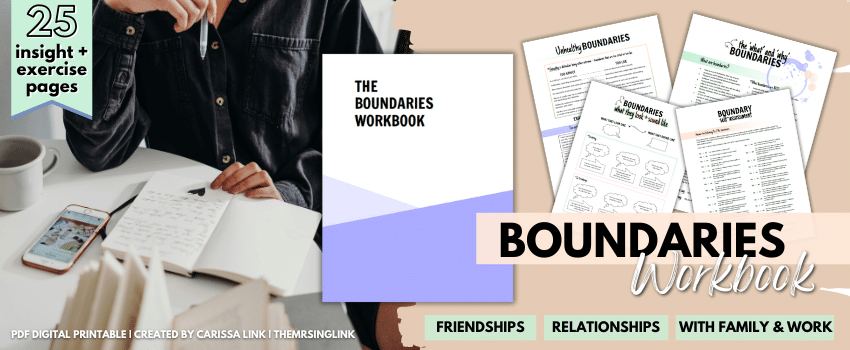
When I fought for certain friendships, the results have always backfired. Okay, when I say *fought for*, I mean like sticking your neck out and standing up for the friendship, which may involve surfacing discomfort, speaking [up for] the *truth*, settling differences, taking accountability while also holding others accountable, and initiating [facing] difficult conversations.
Regardless, fighting for a friendship simply means you care about that friendship enough to speak up, whether pertaining to a specific incident, hurt feelings, violated boundaries, unmet needs, or the *natural* symptoms and consequences of drifting away or falling out. When we *fight for* that friendship, we are willing to endure some hardship – some strain – in order to grow or get to a better place. That means we will also *fight for* friendship during times of conflict, discomfort, and confrontation or when effort and priority begins to be one-sided by simply coming forward, speaking up, “Hey, it’s been almost a month since I’ve heard back from you, and this isn’t the first. I’m feeling like something’s off between us.”
When we’re willing to lift the veil on the hard things, it’s because we genuinely care. But I find that, today, when friends notice or point out the hard things, it’s now an inconvenience and treated accordingly – usually met with over-reactivity [defensiveness, emotional hypersensitivity, aggression], backing off [withdrawing, “going silent”, passive-aggressiveness], deflection [denial, blame-shifting, lack of self-reflection and accountability] or simply walking away from that friendship (wiping the hands clean of it).
I kid you not, when I’ve fought for friendships (and, TBF, I haven’t fought for many – I get more into that in a bit), the result has always seemingly backfired. Literally, like blown up in my face! Acknowledging and addressing tension, confrontation or conflict is like walking on land mines – the danger and repurcussions are inevitable. To try and make it make sense, it’s almost like these friends were either willfully ignorant and/or repulsed by any sense of disruption – ruffling of feathers, unnecessary and insignificant inconveniences, disruption of peace, being called out for their shenanigans or what have you.
[Related Read: Adult friendships are hard, and they never seem to last]
They didn’t like facing hard truths, or [me] bringing them to light. To them, I was simply stirring up some imaginery pot.
For instance, if I came forward and told a friend, “Hey, I haven’t heard from you in a month. We hardly talk anymore. What’s really going on? If it’s something that I’ve contributed to then I’d like to apologize,” I was somehow creating a problem that, according to them, didn’t exist. And, therefore, my apology being insincere.
Or I *became* the problem because I… take things *too seriously*, wasn’t a mind reader about a problem they initially had with me, wasn’t clear *enough* about my feelings which made me seem manipulative, misinterpreted their overall intentions or I wasn’t being *sincere* in accepting accountability on my end (assuming my part in something).
Basically, if the friendship felt *off* and I brought it to their attention, I became the target facilitator since I’m *the one* who acknowledged and surfaced a problem. It’s like I instantly become that *crazy*, over-emotional, over-reactive, irrational and stereotypical clingy girlfriend. At least that’s how I end up being treated; to the point where I literally regret ever saying anything!
[pt_view id=”aafdd82yx5″]
Worse off, fighting for these friendships were met with so much resistance and flat out fatigue (denial, stonewalling, lack of accountability and responsibility) that, all in all I was simply blind to their unwillingness to fight for our friendship in return.
And like I said before, I fought for very few friendships, and those that I did wound up worse off than if I had simply buried the problem(s) or my feelings, let it go or moved on. Because of this, I do find it difficult to connect with people out of fear for when differences, complications, hurt feelings and/or problems do arise. I lean on the side of caution that people tend to accept certain issues as a reason to simply walk away rather than to address and attempt to resolve them. Hence why many have become so accustomed to avoiding conflict (or dealing with conflict poorly and passively) and therefore avoiding creating deeper connections/friendships with others altogether.
At this rate, friendships are so often viewed and treated as being dispensable. It’s almost like what’s the point?!
So why did I fight for these particular friendships, and not others? Honestly, I can’t exactly pinpoint why [yet]. The only conclusion I have fathomed accepting thus far is that I fought for friendships that weren’t meant for me (to be in my life) to begin with. Because I was someone who also fought for unhealthy relationships, until one day I woke up and realized that *I*, regardless, was [the one] enabling the unhealthiness to continue. Maybe I try way too hard to fix what doesn’t want to be fixed, or simply can’t be fixed.
I certainly had other *close* friends whom I drifted or fell away from. And almost all of those had no negative fallout. I just didn’t have this unexplainable need or desire to *fight for* them. But neither did they. So what then?
I do know, now that I am an adult, looking back over the course of my friendships through life so far…I am exhausted, to say the least. I am just tired of tip-toeing around people’s feelings. Yet not doing so still cost me friendships in the end! Again, make it make SENSE. Therefore, unfortunately, friendships equate to walking on eggshells for me. They make me anxious, like trying to hold onto a fragile, lifeless, slippery baby.
And if this has taught me anything, it’s this: to not hold onto something [so hard] that wouldn’t even stick around if I wasn’t.
In turn, I’ve never felt *fought for*. If you felt this, too, then you know what I mean. I know it’s pretty cheesy, but in friendship there’s this longing to feel *meaningful* to someone else; like, you being in their life, no matter how big or small, is a blessing. More importantly, you feel it, so you’re not afraid of losing it.
Instead, it’s almost like every/many friendships you’ve had have fizzled or blown away like the wind if you weren’t the one [holding onto it, dearly] *fighting for* it.
I said before that I didn’t *fight for* many friendships – I can think of two, maybe three, to be exact. I also didn’t mention, in the very beginning of this post, that when this unforeseen baggage smacked me across the face I was actually asleep, in a dream. It woke me up to this tidal wave of feelings (grief, guilt, emptiness, shame). I remember straight sobbing out of nowhere, like in reaction to being told, “…it’s because you feel like no one’s fought for you.”
I also haven’t been super forward about this on my blog, but I have come to Christ again, and have been rejoining/repairing my relationship with God. So when I had this instant and intrusive thought, it took some time before I realized what was really being said. That, at the end of the day, Jesus fought for me. As he did for you – for us all. And that’s all that matters.
[End rant].
